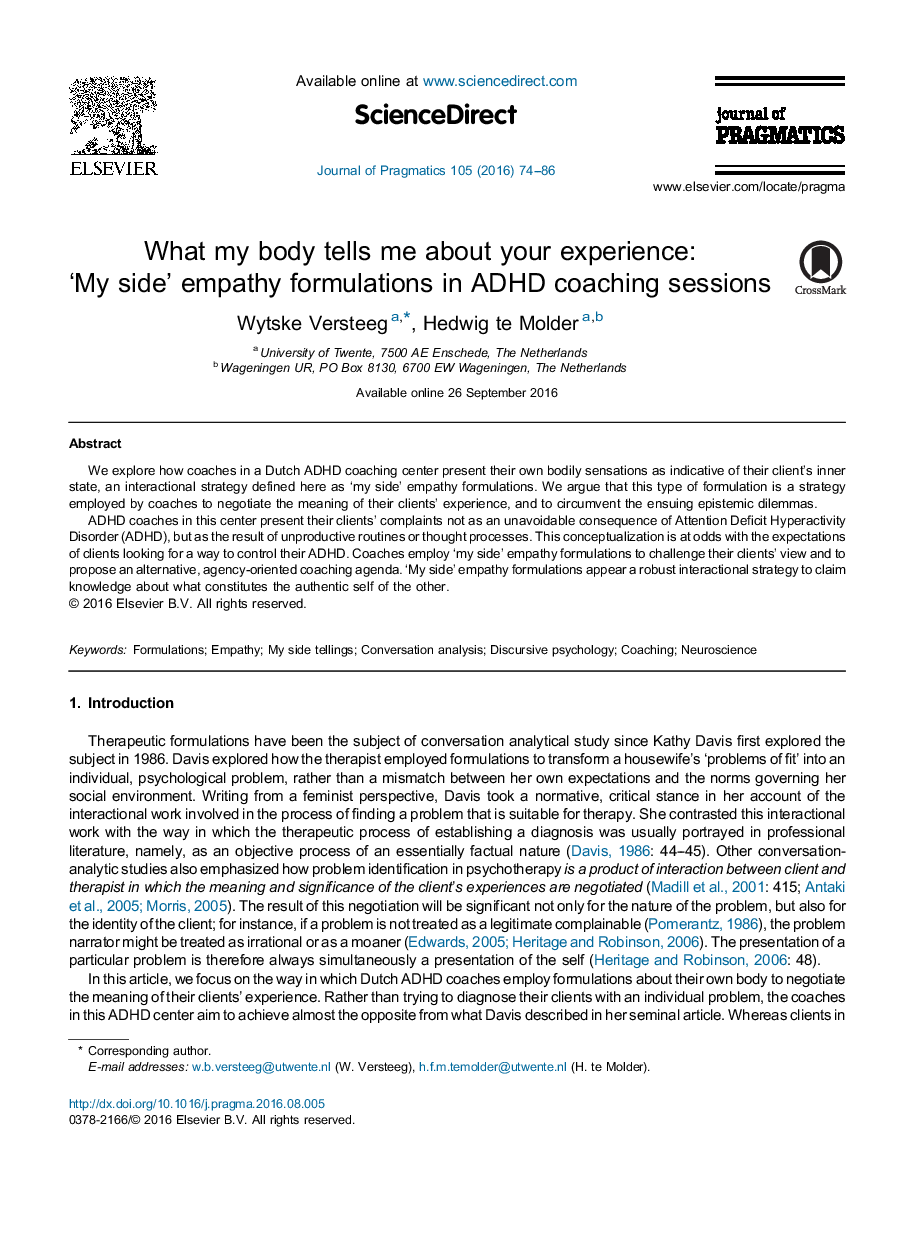| Article ID | Journal | Published Year | Pages | File Type |
|---|---|---|---|---|
| 5042802 | Journal of Pragmatics | 2016 | 13 Pages |
â¢We describe a formulation employed by ADHD coaches to further an agenda of change.â¢Coaches present their own bodily sensation as evidence of their client's inner state.â¢Such 'my side' empathy formulations challenge clients' view of their authentic self.â¢This helps coaches to negotiate the meaning of their clients' experience with ADHD.
We explore how coaches in a Dutch ADHD coaching center present their own bodily sensations as indicative of their client's inner state, an interactional strategy defined here as 'my side' empathy formulations. We argue that this type of formulation is a strategy employed by coaches to negotiate the meaning of their clients' experience, and to circumvent the ensuing epistemic dilemmas.ADHD coaches in this center present their clients' complaints not as an unavoidable consequence of Attention Deficit Hyperactivity Disorder (ADHD), but as the result of unproductive routines or thought processes. This conceptualization is at odds with the expectations of clients looking for a way to control their ADHD. Coaches employ 'my side' empathy formulations to challenge their clients' view and to propose an alternative, agency-oriented coaching agenda. 'My side' empathy formulations appear a robust interactional strategy to claim knowledge about what constitutes the authentic self of the other.
